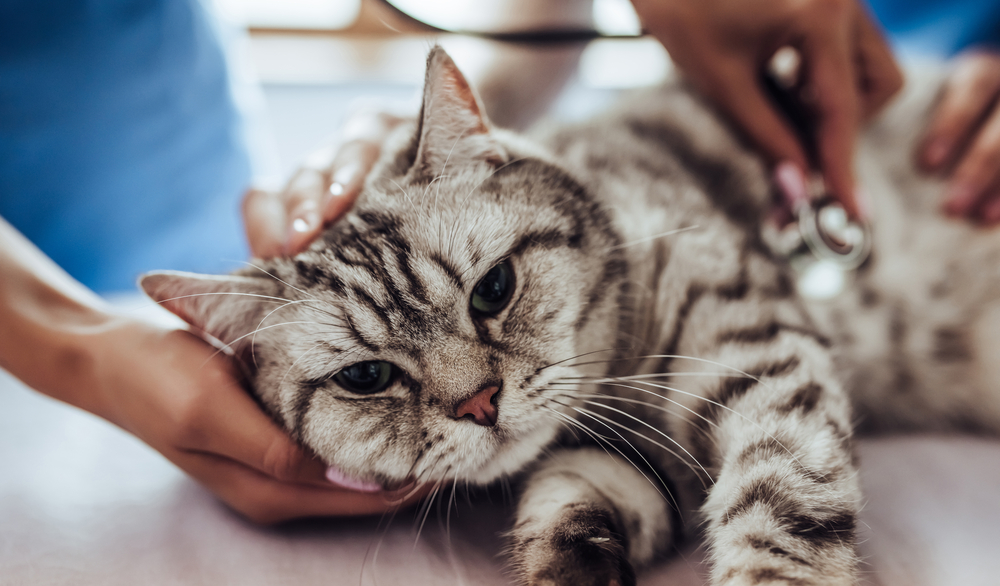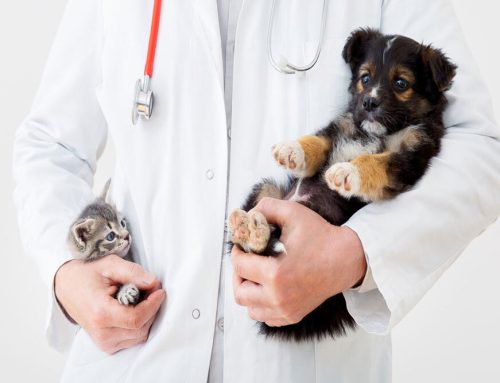Purebred cats and dogs come with unique characteristics and traits, but they can also be prone to specific health conditions because of their genetic makeup. When welcoming a new pet into your family, research potential breed-related health issues before settling on the perfect breed. To help shed light on potential medical problems your four-legged friend may face, our Providence Vet team describes a few of the most common conditions that affect purebred pets.
Common health conditions in small-breed dogs
From tiny toy poodles to charismatic Chihuahuas, toy- and small-breed dogs pack a great deal of personality into a pint-sized body. However, their diminutive stature can also make them prone to certain health conditions. Here are some common health problems seen in small-breed dogs:
- Dental issues — Small dogs are particularly prone to periodontal disease because their mouths are small and their teeth are crowded.
- Luxating patella — Patellar luxation is a condition that causes the kneecap to dislocate from its normal position, leading to intermittent lameness and discomfort.
- Tracheal collapse — Tracheal collapse occurs when the windpipe’s cartilage rings weaken, leading to a flattened trachea and respiratory difficulties.
- Patent ductus arteriosus (PDA) — PDA is a congenital heart defect in which the ductus arteriosus blood vessel fails to close after birth, leading to abnormal blood flow and potential heart failure.
- Portosystemic shunt — A liver shunt is an abnormal connection between the portal vein and another blood vessel, causing blood to bypass the liver and prevent filtration.
Common health conditions in medium-breed dogs
Medium-sized purebred dogs are known for their loyalty, intelligence, and adaptability. However, like all breeds, they are prone to certain health issues caused by their genetic makeup and predisposition. Here are some common health problems seen in medium-breed dogs:
- Eye conditions — Progressive retinal atrophy (PRA), cataracts, and cherry eye are among the eye conditions to which medium-sized breeds, such as the Cavalier King Charles spaniel, Pembroke Welsh corgi, schnauzer, and bulldog, may be predisposed, potentially leading to vision impairment or blindness.
- Allergies — Medium-sized purebred dogs can be prone to allergies, including environmental allergies (e.g., pollen, mold, dust mites), flea allergies, and food allergies (e.g., chicken, lamb, fish, dairy). Breeds, such as the bulldog, shar-pei, and shih tzu, may experience itchy skin, ear infections, and hair loss.
- Mitral valve disease — Cavalier King Charles spaniels often suffer from this particular cardiac condition that can potentially lead to heart failure if left untreated.
Common health conditions in large- and giant-breed dogs
Large-breed dogs, while often regarded as majestic, gentle giants, are prone to several health issues because of their size, growth rate, and genetic predisposition. Here are some problems commonly seen in large- and giant-breed dogs:
- Hip and elbow dysplasia — These common skeletal conditions occur when a joint develops abnormally, leading to pain, lameness, and arthritis.
- Panosteitis — Commonly referred to as “growing pains,” this condition causes intermittent lameness spurred by inflammation within large- and giant-breed puppies’ long bones.
- Gastric dilatation-volvulus (GDV) — This life-threatening condition occurs when the stomach fills with gas and twists on its axis, cutting off blood flow.
- Dilated cardiomyopathy (DCM) — Some large-breed dogs, such as Doberman pinschers and boxers, are predisposed to DCM, a condition where the heart muscle weakens and enlarges, leading to heart failure.
Common health conditions in purebred cats

Purebred cats, similar to their canine counterparts, are prone to certain health issues caused by genetic factors and breed characteristics. Here are some common health problems that purebred cats may encounter:
- Polycystic kidney disease (PKD) — Commonly seen in Persians, PKD is a genetic condition characterized by the formation of fluid-filled cysts in the kidneys.
- Hypertrophic cardiomyopathy (HCM) — HCM is the most common heart disease seen in cats and can affect various purebred cat breeds, including Maine coons, ragdolls, and British shorthairs. This condition is characterized by heart muscle thickening, which can lead to heart failure and sudden death.
- PRA — Breeds, such as the Abyssinian, Bengal, and Siamese, are at an increased risk for PRA, a degenerative eye disease that can lead to blindness.
- Gingivitis and stomatitis — Some purebred cats, such as Persians and British shorthairs, are prone to gingivitis and stomatitis, which are inflammatory conditions affecting the gums and oral cavity.
While certain health issues are more commonly seen in purebred pets, keep in mind that an individual pet’s susceptibility varies. Not all cats or dogs of a particular breed develop the genetic conditions to which the breed is prone.
Routine veterinary exams, preventive care, and early intervention can help manage and mitigate your pet’s health problems, ensuring a good quality of life for your purebred pet. Schedule your pet’s regular exams with our Providence Vet team to help keep your four-legged friend happy and healthy for years to come.






Leave A Comment